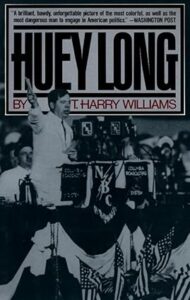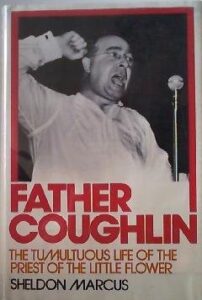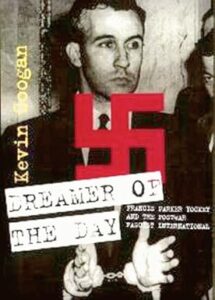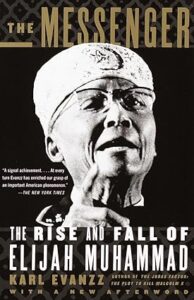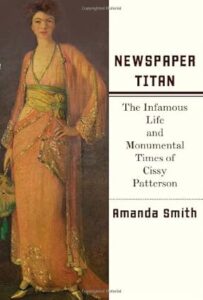In an age when the media speaks with one voice and dissent is demonized, it’s worth remembering a time when bold nationalist voices still echoed through the halls of American power.
Figures like Huey P. Long, Father Coughlin, Gerald L. K. Smith, and even media barons such as William Randolph Hearst and Colonel McCormick stood defiantly against the creeping tide of globalism, war, and financial manipulation.
These men—and a few principled women like Cissy Patterson—championed an America First vision rooted in sovereignty, economic justice, and peace.
Though smeared, silenced, or simply erased from the public record, their stories still burn with relevance—and their warnings ring louder than ever.
Forgotten Populists Who Challenged Power
One of the most remarkable nationalist figures of the 20th century was Huey P. Long.
Known as the “Kingfish” of Louisiana, Long remains one of the most polarizing politicians in American history.
His rise and sudden assassination in 1935 left a void in the populist movement. Many believed he posed a serious threat to President Franklin D. Roosevelt’s second-term ambitions.
For those interested in Long’s life and influence, the Pulitzer Prize-winning biography Huey Long by T. Harry Williams (Knopf, 1969) is highly recommended.
It offers an engaging and well-rounded look at Long’s political career.
Long’s own memoir, Every Man a King, and his posthumously published vision, My First Days in the White House, are essential for understanding his populist philosophy.
These works give insight into his goals for economic reform and national sovereignty.
Another valuable read is Share the Wealth: Huey Long vs Wall Street, published by American Free Press in 2010.
Edited by Michael Collins Piper, this book compiles Long’s speeches and writings, as well as commentary by his contemporaries.
The included afterword explores myths surrounding Long’s assassination.
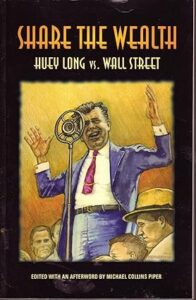
Ezra Pound and H.L. Mencken offered fierce cultural resistance to the globalist elite long before it was fashionable—read how they shaped the populist tradition.
Allies in the Fight for the American Majority
The 1930s were a chaotic time in American politics.
After Long’s death, other populists rose to prominence.
Father Charles Coughlin, the famous radio priest, along with Dr. Francis Townsend and Gerald L. K. Smith, joined forces to form the Union Party.
This coalition backed Congressman William Lemke in the 1936 presidential race.
David H. Bennett’s Demagogues in the Depression: American Radicals and the Union Party 1932–1936 (Rutgers University Press, 1969) offers a strong overview of this unique coalition and their challenge to Roosevelt.
Gerald L. K. Smith, one of the most controversial figures of the period, was praised by H. L. Mencken as the greatest orator in America.
His memoir Besieged Patriot (1978) is an entertaining and deeply revealing read.
Though criticized in modern academic circles, Glen Jeansonne’s Gerald L. K. Smith: Minister of Hate (Yale University Press, 1988) remains a thorough study.
Another of Jeansonne’s works, Women of the Far Right: The Mother’s Movement and World War II (University of Chicago Press, 1996), documents the female allies of these men who tried to keep America out of World War II.
Father Coughlin is profiled in Father Coughlin: The Tumultuous Life of the Priest of the Little Flower (Little, Brown, 1973) by Sheldon Marcus.
Though written by a Jewish author, the book approaches Coughlin’s complex legacy with balance and detail.
Read Forgotten Populists: Jefferson, Dennis, and Their Legacy to see how they opposed foreign wars.
The Enigmatic Francis Parker Yockey
Francis Parker Yockey remains one of the most mysterious figures in postwar nationalist philosophy.
While not a conventional American nationalist, his ideas have deeply influenced nationalist circles.
Kevin Coogan’s Dreamer of the Day: Francis Parker Yockey and the Postwar Fascist International (Autonomedia, 1999) is an expansive and fascinating work.
Though clearly biased in its framing, it contains invaluable documentation of Yockey’s global connections.
Yockey’s book Imperium has become a staple of nationalist reading lists.
Willis Carto republished and popularized it.
While Carto admitted he didn’t agree with all of Yockey’s ideas, he valued the philosophical depth of the work. Many critics reference Imperium without having actually read it.
A lesser-known but significant essay by Yockey is What Is Behind the Hanging of the Eleven Jews in Prague? (1952).
This work was reprinted in the January–February 2005 issue of The Barnes Review and offered a controversial analysis of Soviet-era politics in Eastern Europe.
Read Gore Vidal: Populist Rebel from America’s Elite Circles to see how he challenged America’s empire.
Black Nationalism and Unexpected Alliances
Black nationalism also shares roots with the America First movement.
Figures like Minister Louis Farrakhan and Elijah Muhammad of the Nation of Islam have often been mischaracterized in mainstream media.
Michael Collins Piper personally interviewed Farrakhan and emphasized the philosophical overlaps between the Nation of Islam and traditional American nationalism.
A recommended resource on this subject is The Messenger: The Rise and Fall of Elijah Muhammad (Pantheon, 1999) by Karl Evanzz.
The book sheds light on the development of Black Nationalism in America, and how its leaders often opposed U.S. wars and foreign entanglements.
While many White Americans, especially White nationalists, have been critical of Farrakhan, some now recognize his group as potential allies against the globalist agenda.
Hearst, McCormick, and the Old Guard of Nationalist Media
There was a time when American newspapers voiced strong nationalist views.
Giants like William Randolph Hearst, Colonel Robert R. McCormick, and Cissy Patterson defied the growing push for international wars and centralization of power.
The View From Xanadu: William Randolph Hearst and United States Foreign Policy (McGill-Queen’s University Press, 1995) by Ian Mugridge analyzes Hearst’s views on international politics.
Though smeared as a warmonger, Hearst actually promoted American sovereignty and questioned foreign entanglements.
A more personal look at Hearst’s life is offered in Citizen Hearst by W.A. Swanberg.
The book remains a classic biography and is essential for understanding how Hearst shaped early 20th-century American politics.
Colonel McCormick, publisher of The Chicago Tribune, is the subject of The Colonel: The Life and Legend of Robert R. McCormick, 1880–1955 (Houghton Mifflin, 1997) by Richard Norton Smith.
McCormick fought against U.S. involvement in Europe and against Roosevelt’s centralization of power.
Cissy Patterson, his cousin and publisher of The Washington Times-Herald, stood her ground against media pressure and Zionist intimidation.
Newspaper Titan: The Infamous Life and Monumental Times of Cissy Patterson (Knopf, 2011) by Amanda Smith is a must-read.
Despite her pioneering role, Patterson is ignored by feminists because of her political views.
War vs. Peace: The Eternal Divide
The real divide in American politics has never been Democrat vs. Republican.
It has always been nationalism vs. internationalism.
And nowhere is this more apparent than in the debates over war.
The nationalist position has consistently favored peace and non-intervention.
Yet since World War II, wars have been normalized through relentless propaganda.
The media constantly invokes World War II, the Holocaust, and Adolf Hitler to justify today’s conflicts.
Even internet commentators like Alex Jones rarely go five minutes without bringing up the Nazis—ironically reinforcing the same narratives pushed by the globalist establishment.
Michael Collins Piper argued that real truth seekers should read the books referenced here before speaking further. These works expose the myths and give readers the tools to think critically about history and geopolitics.
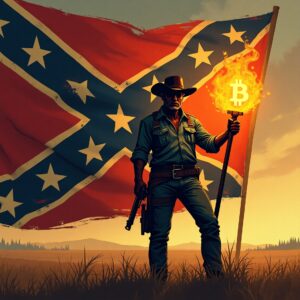
Final Thoughts
Many of the books and figures mentioned in this post have been erased, ridiculed, or forgotten.
But their insights still matter.
Whether you agree or disagree with every detail, their works offer powerful tools for challenging the lies of empire and the silence imposed by mainstream media.
If you want to understand what’s really going on, start with the reading list above.
History might not repeat, but it certainly rhymes—and understanding the past remains key to reclaiming the future

